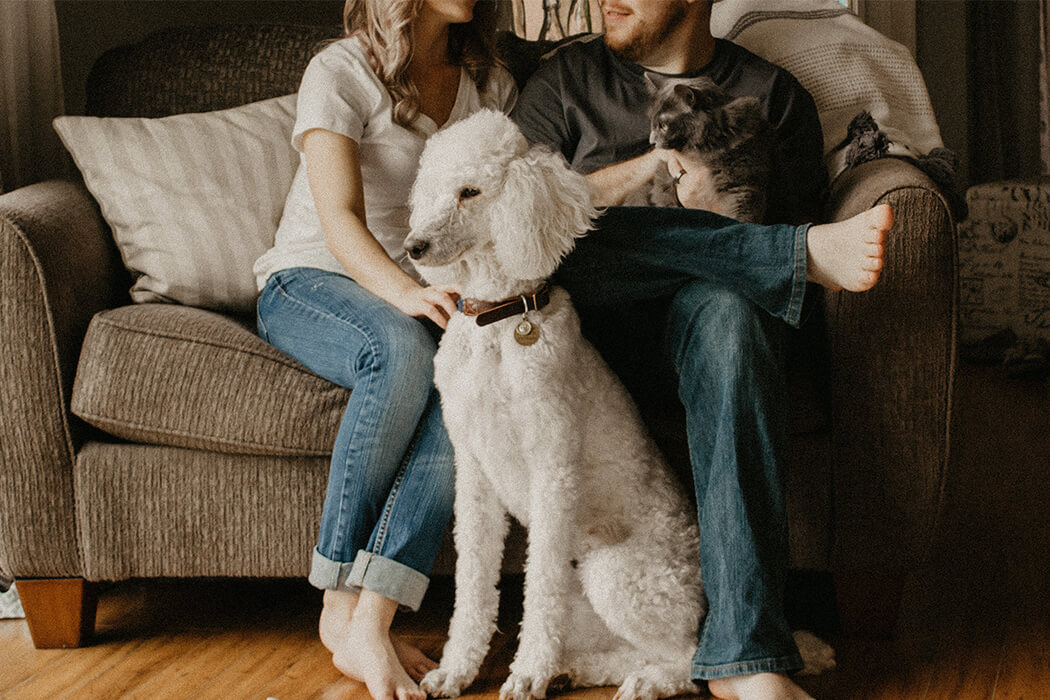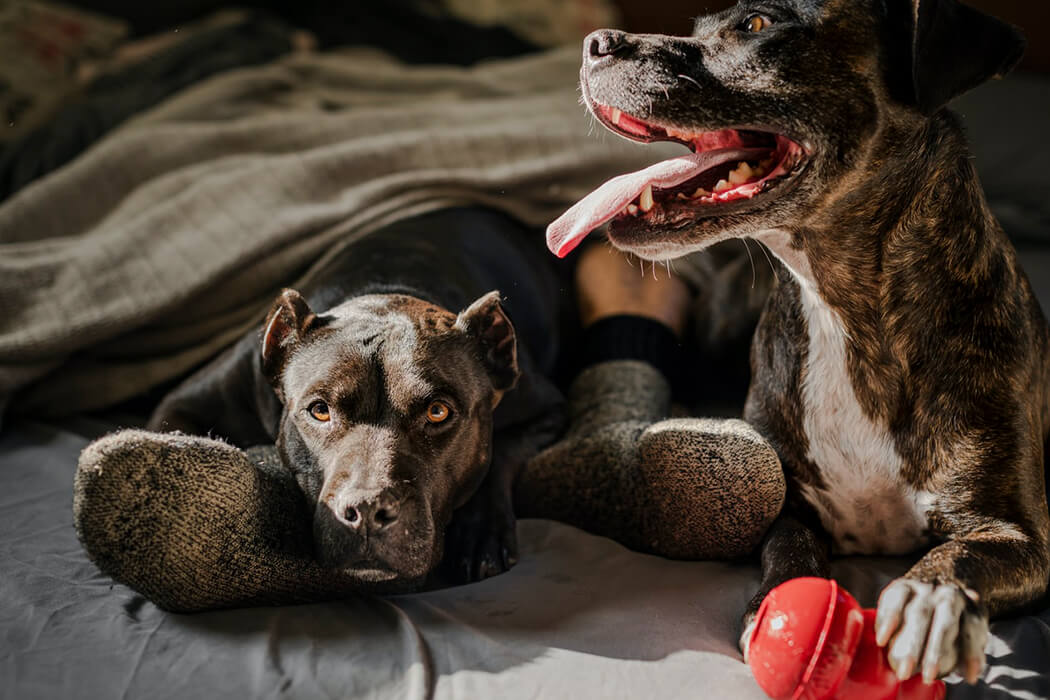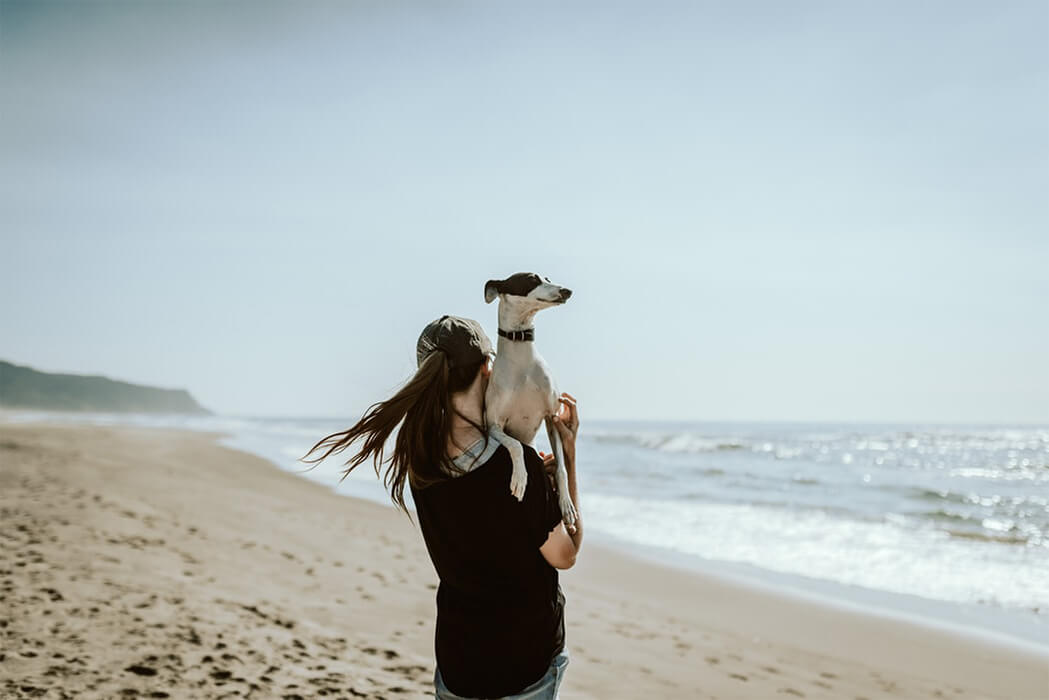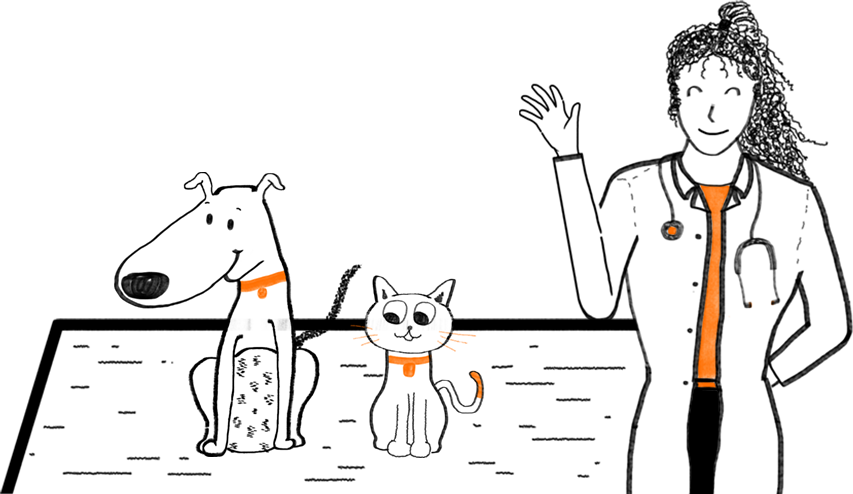February 25, 2021
How much love is too much?
The human-animal bond is a unique part of many households. The ability to nurture your pet and be nurtured by them on a basis of unconditional love is very appealing and both physiologically and emotionally rewarding for many people. However, this special bond can also be the basis of a myriad of negative medical conditions developing for your beloved pet if appropriate care is not taken.

It is recognised that owning a pet, or even just being in the presence of a companion animal has been shown to be associated with health benefits for humans, such as improvements in mental, social, and physiological health status.
Companion animals provide a non-judgemental ear, a soft cuddle, and a great number of other benefits for their owners. The ability of pets to allow people to interact in social situations, walking a dog as a means of ensuring your own exercise, and the motivating role of a pet needing your care can help alleviate many symptoms of loneliness and depression for a number of people in our community.
The warm, loving homes that are offered to companion animals where there is a strong human-animal bond can be equally beneficial for the pet. Provisions of warmth, quality food, adequate water, shelter, and companionship for the animal are some of the benefits available in these settings.
Ways to take care of your pets
Pet supplies such as dog beds, cat trees, kennels, dog toys, cat bowls, and kitty litter trays are important factors in making your pet comfortable. Provision of appropriate veterinary care and preventative pet medications help enhance the quality and longevity of the lives of many of these animals.
However, the human-animal bond can become a problem inciting medical disorders in some animals. Owners need to be aware that their beloved pet, although providing unconditional love and relying on your devotion and care, is not a "little human being" regarding its physiological needs.
Many pet owners will overindulge their pets with their "favourite" human foods and allow them to sleep in their beds, or have a dominant role in the household. Whilst the appropriateness of all activities is a decision for the owner to make, these decisions should be made with an understanding of the dog's physiological needs and the possible behavioural consequences of such activities.

Feeding table scraps of human foods or providing an unbalanced home-made diet can be a cause of malnutrition or serious disorders in pets. Dogs and cats have different metabolic needs to humans, and to each other.
Thus, it is vital to ensure that your pet is fed a high quality dog food or cat food specifically formulated for the type of animal you are feeding. Animals have different nutrient needs and different quantities of these nutrients are needed by different species. Furthermore, some human foods are toxic to animals.
Examples for dogs include, but are not limited to, chocolate, raisins, and macadamia nuts. Excessive fat intake can lead to pancreatitis, a severely debilitating and potentially life-threatening illness in dogs. Excessive caloric intake and limited exercise can lead to obesity in companion animals. With obesity comes the risk of numerous secondary illnesses and disorders.
The human-animal bond is a magnificent thing which has many potential benefits for humans and animals alike if it is understood and treated appropriately. Owners can still nurture and give treats to pets provided they are animal-specific and limited in number. The human-animal bond is enhanced naturally when treats and rewards are given in the form of pats and affection to the animal without the need for food related rewards.
Behavioural Disorders
Excessive human-animal bonding can also be responsible for the development of many behavioural disorders in companion animals. For example, dogs that are allowed to jump on furniture, sit on visitor's laps, sleep on their owner's beds, and basically have free-run of the house can develop behavioural disorders associated with dominance.
Well-loved pets still need to have boundaries and their place in the household, "pecking order" needs to be well defined for them with consistent cat or dog training. Confusion in this respect of lack of boundaries can allow them to feel more likely to challenge the status quo, bite, and be less adept to deal with changes in the home environment if they occur.
Dogs which are not given strong daily routines or are given too much human attention and do not learn independence and appropriate ways of entertaining themselves alone may suffer from separation anxiety when left alone. This can result in destruction of household goods, barking, inappropriate house soiling, and self-injurious behaviours. This is a significant problem for many owners.
How to maintain optimal health for you and your pet
Keeping owners healthy is another vital area of discussion when looking at the extent of the human-animal bond. Animals can provide great companionship and devotion and are extremely good at providing motivation to owners who need to feel they are contributing to things.

However, the appropriate degree of interaction needs to be understood. There are some diseases carried by companion animals which can be spread to humans. These are called zoonoses. If owners are in very close contact with their pet and allow kissing, licking, and scratching to occur, then transfer of pathogens is always possible.
Maintaining optimal health for your pet using genuine cat medications or dog medications can help reduce the likelihood of your pet carrying a disease with zoonotic potential. It is vital to limit very close contact involving saliva, other bodily fluids, and the like. This is essential if any member of the household is immunocompromised in any way. Your veterinarian can discuss this in more detail with you.
Many owners find pet ownership to be an extremely rewarding endeavour. The development of the human-animal bond is vital in this relationship being long term and beneficial for both parties. However, allowing the human-animal bond to become too strong or overtake some of the household's normal situations and routines can result in illness or behavioural issues for the pet or owner.
Being aware of how to balance these needs is vital for a satisfying relationship. After all, isn't a satisfying relationship what we want on Valentine's Day and every day? Have a lovely and heartwarming day to you and your pet from Trixan Pet.
